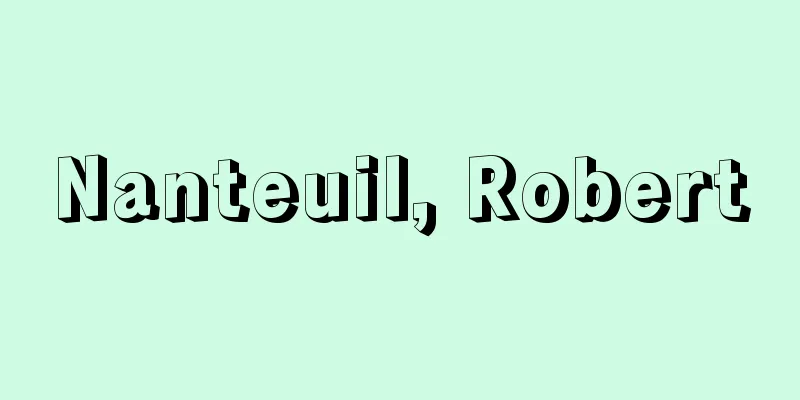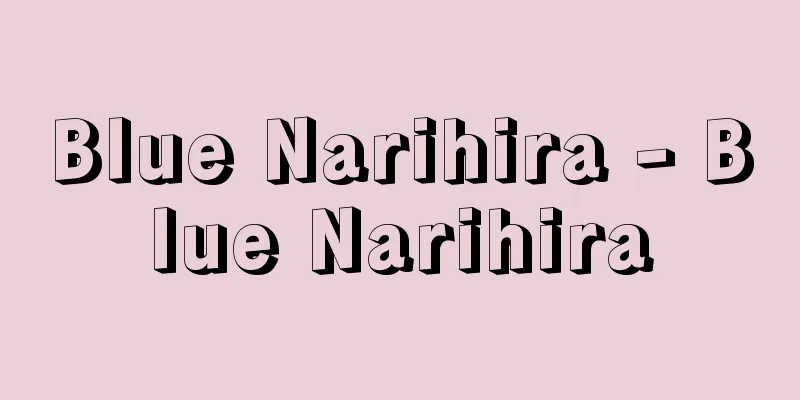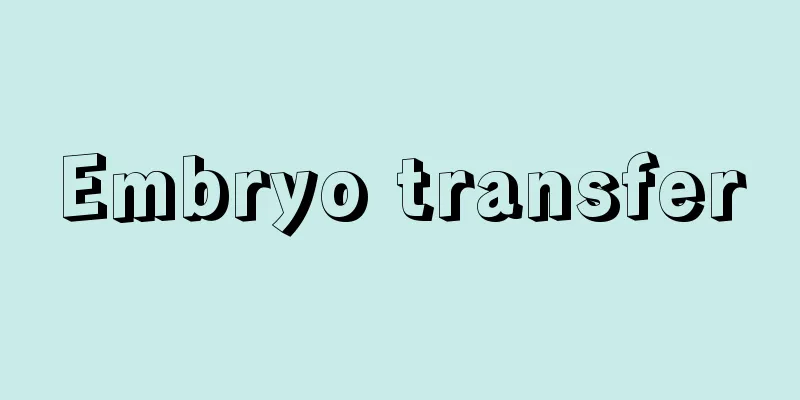Pledge - pledge

|
A secured right (Civil Code, Articles 342-366) allows a creditor to indirectly enforce the debtor's payment by retaining an object received from the debtor or a third party as security for a credit until the debt is paid, and to receive priority payment from the object if the debt is not paid. A pledge, like a mortgage, is a secured right created by contract and is used as a means of obtaining finance. However, a pledge differs from a mortgage in that the object is not taken from the pledger and remains with the pledger in that the object is taken from the pledger and transferred to the pledgee (creditor). The object that can be pledged (put into a pawn) is most commonly movable property (movable property pawn), but it can also be real estate (real estate pawn) or rights such as credits or stocks (rights pawn). In order to establish a pledge, the object must be handed over to the creditor, so the pledger cannot use the object until the debt is paid. Therefore, pledges are inconvenient when using company equipment, etc. as collateral to obtain corporate funds, and in such cases, methods such as mortgages, which do not require the handing over of the collateral to the creditor, are often chosen. Pawn rights are primarily used when ordinary people borrow relatively small amounts of money using movable property such as everyday items as collateral. Pawnbrokers are businesses that provide financing by pawning goods in this way, but they are subject to legal restrictions under the Pawnbroker Business Act (Act No. 158 of 1950). Pawning real estate is not used much because handing over real estate to a creditor often means losing the basis for one's livelihood or business activities from tomorrow onwards. In contrast, pawning rights to bonds, stocks, etc. does not directly affect one when bond certificates or stock certificates are pawned, so they have come to be frequently used when borrowing funds from banks, etc. The pawnee has the right to retain the pawned goods, as well as the right to receive preferential payment from the pawned goods if the debtor does not repay the debt by the due date. In order to receive preferential payment, in principle, an auction procedure under the Civil Execution Act must be followed. A "foreclosure contract," in which the pawned goods automatically become the property of the pawnee (become a foreclosure) if the debtor does not repay the debt by the due date, is prohibited by law. The purpose of this is to prevent debtors from losing expensive items for small debts. However, for pawns used by merchants to secure claims acquired through their business (Article 515 of the Commercial Code) and for commercial pawnbrokers who aim to provide simple and small loans, foreclosure is permitted. [Yasuyuki Takahashi and Masamitsu Nozawa] SubstitutionWhen a pawner pawns something that he has taken as a pawn to another person to pay his own debt. For example, if B pawns A's watch, he pawns the same pawned item again to borrow money from C. Sub-pawning does not require the consent of the person who pawned the item (A). In return, the person who sub-pawned (B) must compensate for any damage that would not have occurred if he had not sub-pawned the item, even if the damage was due to force majeure. [Yasuyuki Takahashi and Masamitsu Nozawa] [Reference] | | |Source: Shogakukan Encyclopedia Nipponica About Encyclopedia Nipponica Information | Legend |
|
債権者が、債権の担保として債務者または第三者から受け取った物を、債務が弁済されるまで留置して、債務者の弁済を間接的に強制するとともに、弁済されない場合には、その物から優先的に弁済を受ける担保物権(民法342条~366条)。質権は抵当権とともに契約によって生ずる担保物権で、金融を得る手段として用いられる。しかし質権は、質の目的となる物を取り上げて、質権者(債権者)の手元に占有を移す点で、目的物を取り上げないで設定者のもとに置いておく抵当権と異なる。質権を設定する(質に入れる)ことのできる物は、動産がもっとも普通であるが(動産質)、そのほか不動産(不動産質)でも、債権・株式などの権利(権利質)でもよい。質権を設定するためには、目的物を債権者に渡さなければならないから、債務が弁済されるまでは、質権設定者はその物を使用できない。したがって、企業資金を獲得するために、企業の設備などを担保にするときには、質権は不便であり、そのような場合には、抵当権のように担保となる物を債権者に渡さなくてもよい方法が選ばれることが多い。 質権は主として、庶民が日用品などの動産を担保に比較的少ない額の金を借りる場合に用いられる。そのように物品を質にとって金融を行うことを業とする者が質屋であるが、質屋は質屋営業法(昭和25年法律第158号)による法的規制を受けている。不動産質は、不動産を債権者に渡してしまうと、明日からの生活あるいは企業活動の根拠を失うことが多いので、あまり利用されない。これに反して、債権・株式などの権利質は、債権証書や株券を質に入れても、直接痛痒(つうよう)を感じないので、銀行から資金を借り入れる場合などにしばしば利用されるようになってきた。 質権者は質物を留置する権利とともに、債務者が期限に弁済をしないときに質物から優先的に弁済を受ける権利をももつ。優先弁済を受けるには、原則として民事執行法による競売の手続をとらなければならない。債務者が期限に弁済をしないときには質物は当然質権者の所有になる(質流れになる)という「流質(りゅうしち)契約」は法律により禁じられている。債務者がわずかな債務のために高価なものを失うはめになることを防止しようという趣旨である。ただし、商人がその営業によって取得した債権を担保するための質権(商法515条)や、簡便でしかも少額の金融を目的とする営業質屋には、質流れも許されている。 [高橋康之・野澤正充] 転質質権者が質としてとっている物を、さらに自分の債務のために他人に質入れすること。たとえば、甲の時計を質にとっている乙が、その質物をさらに質に入れて丙から借金するのが、それである。転質をするには質入れした人(甲)の承諾はいらない。そのかわり、転質をした者(乙)は、転質をしなかったら生じなかったはずの損害は、たとえ不可抗力による損害があっても、賠償しなければならない。 [高橋康之・野澤正充] [参照項目] | | |出典 小学館 日本大百科全書(ニッポニカ)日本大百科全書(ニッポニカ)について 情報 | 凡例 |
>>: Shichiku Shoshinshu - Beginner's Collection
Recommend
The Land of Izumo
A woman who is said to have laid the foundations o...
Odontoglossum rossii - Odontoglossum rossii
...They were introduced to Japan around the end o...
Opium Regulation - opium regulation
...The unripe fruit of the opium poppy, Papaver s...
Minamata disease
This organic mercury poisoning has occurred again...
Geneva Catechism - Catechismus Genevensis [Latin]
Calvin's catechism. When he returned to Geneva...
Ministry of Transport - Unyusho
A national administrative agency established by t...
Linoleic acid - Linoleic acid
It is a typical n-6 (ω6) polyunsaturated fatty ac...
Haeckel, Ernst (Heinrich Philipp August)
Born: February 16, 1834, Potsdam [Died] August 9, ...
Church Slavonic language
Middle Slavonic was a language that evolved from O...
Fujioka [city] - Fujioka
A city in southern Gunma Prefecture. It was incorp...
Sayyid Muhammad
...A nationalistic rebellion that lasted for 21 y...
Collaborative medical care - gassakuiryo (English spelling)
One of the medical systems in the People's Rep...
Calculation of the Buddhist scriptures - Calculation of the Buddhist scriptures
This is a book on mathematical methodology written...
Year-end gift - Seibo
It refers to giving gifts at the end of the year ...
Onitachibana - Onitachibana
…An evergreen tree of the Rutaceae family, it is ...









